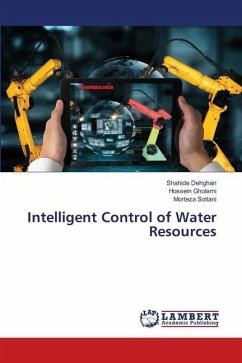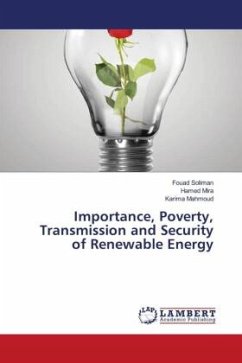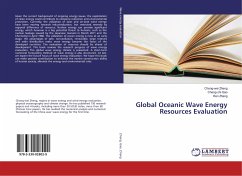
Intelligent Control of Water Resources
Versandkostenfrei!
Versandfertig in 6-10 Tagen
29,99 €
inkl. MwSt.

PAYBACK Punkte
15 °P sammeln!
Water covers 70% of our planet. If you think this figure is reassuring and wonder why should we care about such a plentiful resource, then think again. Water scarcity is a growing issue. According to several UN reports, it will directly affect nearly 20% of the human population by 2025. By 2040, roughly 1 in 4 children worldwide will be living in areas of extremely high-water stress. This is not limited to developing countries. Indeed, freshwater - the one we drink, bathe, grow our vegetables with, and cook with - is incredibly rare. Only 3% of the world's water is fresh water, and two-thirds ...
Water covers 70% of our planet. If you think this figure is reassuring and wonder why should we care about such a plentiful resource, then think again. Water scarcity is a growing issue. According to several UN reports, it will directly affect nearly 20% of the human population by 2025. By 2040, roughly 1 in 4 children worldwide will be living in areas of extremely high-water stress. This is not limited to developing countries. Indeed, freshwater - the one we drink, bathe, grow our vegetables with, and cook with - is incredibly rare. Only 3% of the world's water is fresh water, and two-thirds of that is hidden away in frozen glaciers or unavailable for use. According to several NGO's, about 1.1 billion people worldwide lack access to water, and a total of 2.7 billion find water scarce for at least one month of the year. Climate change and a growing population are the main reasons for this but they aren't the only ones: collapsed infrastructure and distribution systems, pollution,conflict, overloaded water systems, and poor management of water resources are just a few of the human factors that are increasingly denying people their right to safe water and sanitation.












